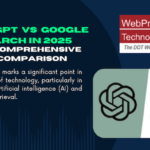Search queries express the search intent of the user on the search engines. Every search query is influenced by many aspects. It can be a question about:
• A new product or brand,
• It may be about a product they already know and use,
• Or it may be a product that they have seen on social media platforms and are curious to know more about,
• Or a brand which is promoting via other channels and has caught the searcher’s fancy.
Out of curiosity the user may search for:
• Product name
• Product name + Brand name
• Product Category
• Product Category + Brand name
How Social Media Presence Has An Impact On Search Behavior:
In 2009 a research explored the correlation between social media exposure and search behavior over a three month period across different verticals, including automotive, consumer packaged goods and telecommunications.In addition to looking at total internet users, consumers were divided into three segments:
• Consumers exposed only to a brand’s paid search
• Consumers exposed to social media relevant to a brand’s category . A blog, message board/forum, user review, social networking site (e.g., Facebook, MySpace, LinkedIn), Twitter/micro-blogging, or video-sharing site (e.g., YouTube, Google Video), as well as a brand’s social marketing program’s “target” sites, or sites which have the most natural potential to hold content about a brand
• Consumers exposed to influenced social media specific to a brand. Identified sites containing distributed social marketing content of a brand’s social media program
Search behavior was broken into segments based on where queries fell among stages of the purchase funnel. This included upper-funnel terms expressing awareness and consideration (industry relevant terms, general product attributes) to lower-funnel terms expressing action and loyalty (campaign brand terms, brand product terms).
The study showed searchers who engage with social media, especially those exposed to a brand’s influenced social media, are far more likely to search for lower-funnel terms compared to consumers who do not engage with social media.
Further, consumers exposed to a brand’s influenced social media and paid search programs are 2.8x more likely to search for that brand’s products compared to users who only saw paid search.
The study also showed a 50 percent CTR increase in paid search when consumers were exposed to influenced social media and paid search. This revealed consumers exposed to social media are more likely to click on a brand’s paid search ad compared to those exposed to the brand’s paid search alone. Among searchers using a brand’s product name in the query, the CTR increased from 4.5 percent to 11.8 percent when users were exposed to both influenced social media and paid search around a brand.
In organic search, consumers searching on brand product terms who have been exposed to a brand’s social marketing campaign are 2.4x more likely to click on organic links leading to the advertiser’s site than the average user seeing a brand’s paid search ad alone.
“Social media-exposed consumers are far more likely to search for brand and product-related terms, and click on a brand’s paid search ad,” according to Graham Mudd, vice president of comScore, Inc. “This finding provides strong evidence that investing in social media marketing can both increase initial brand consideration and drive higher conversion rates once the consumer has decided to purchase.”
These research results were published in 2009 when social media was just at the initial stage and everyone was just trying to learn how to use each social media platform. In 2015 we can now understand how this is having an impact on search results.
How Brand + Product/Category Search Queries Have An Impact On Search Results:
We have been talking about how search has integrated social media signals to their search algorithms. Now it is time to see its impact on search results.
Social Media is not only Facebook and Twitter but each and every foot print created on the web which has a potential of being shared further.
This is where the content comes in. Social Media presence can be fueled only by valuable content. This content can be in any format. It can be in the form of text, images, audio, video, infographic, etc. As consumers spend more time online and fragment their attention away from traditional media channels across various devices, the task is more challenging than ever before for marketers.
Media delivery has an established place in the media mix. But, search remains the dominant direct response channel. People may come to know about a brand on any social media platform but he will surely go to the search engine to search for the brand and the product and check the search results. The first 10 – 15 search results of the brand are a deciding factor. Social Media presence positively affects consumer purchase consideration, specifically through the search channel
The social media presence influences the searcher to search for the brand and the product on the search engines. As the social media presence increases (brand + product) searches also increase in number. Over a period of time, the brand gets correlated to the product. Once this correlation becomes stronger the brand’s search presence improves for those product searches.
For example if a brand deals in 5 products and wants its brand to get correlated to all the 5 products then a proper balance is needed on the social media platforms in terms of what is shared on social media. All the 5 products need an equal web presence individually to get correlated to the brand jointly.
Hence, the social media presence of any (brand + product) and (no. of search queries for that brand and product) on the search engines boost the correlation between both the terms i.e (Brand + Product/Category).
Hence to increase the no. of (brand + product) search queries one needs to have a quality web presence via social media, an updated blog, email marketing, participating in online discussions and every other media which can be shared further by the reader easily.
This clearly explains why every brand today needs a social media presence and how search presence and social media presence are integrated. Social media presence triggers the brand and product searches, the more the social media presence (as in Quality not in quantity), the more no. of brand and product search queries. These search queries coming from more no. of distinct users from different parts of the globe act as social signals for search algorithms and as the correlation increases the rankings for brand and product terms jointly and individually improve over a period of time.
The posts published on social media do not only create awareness among the users but each post gets indexed by the search engines as unique URLs. These URLs become the quality, informative and topical inbound links for the domains and establish the correlation further.
The cost of attaining a new customer is always more than that of retaining an old one. Hence it is not only important to focus on increasing online awareness of the brand and product but also focusing on how to respond to the online inquiries immediately and efficiently is equally important. The real ROI is achieved when a new aware customer becomes a loyal customer in the long run.
Hence, quality social media presence service to me is the best off-page optimization that a genuine SEO company can offer. This not only improves the search presence but also has the potential to retain the search presence and make it stable for a long time. SEO is a necessity, Content Marketing is the strategy and Social Media is the channel.
July 10, 2015





